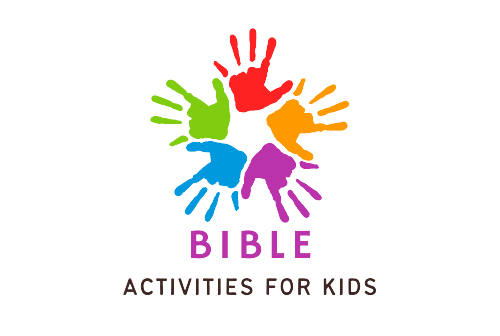A Complete Guide To Choosing A Faith Filled Christian Preschool Curriculum

Choosing the best Christian preschool curriculum for your child is a very important decision. A Christian preschool curriculum allows one to integrate academic learning with spiritual growth. Here is an example of Christian preschool curriculums which we will explore further in this post along with the key components of a Christian preschool curriculum and the benefits. Whether you’re a homeschooling parent, a church-based preschool teacher, or someone exploring faith-based education, this information will definitely be useful for you so let’s dive right in.
This post may contain affiliate links. You can read my full affiliate disclosure here.
Why Choose a Christian Preschool Curriculum?
You may be wondering why you should choose a Christian preschool curriculum. Well here are some great reasons. A Christian preschool curriculum offers:
- A Strong Foundation in Faith: Do you remember the bible story about the wise man who built his house on the rock and the foolish man who built his house on the sand? Well, choosing a Christian preschool curriculum is about building your child up on the rock. A Christian preschool curriculum helps children to understand the essentials of a great relationship with God as they learn about God’s love, the importance of prayer, and the teachings of the Bible.Starting with a Bible based curriculum can help build a strong foundation for a lifelong faith experience.
- Character Development: Christian curriculums can help kids learn about qualities like kindness, honesty, and patience. Christian stories will help kids see these traits in action and will help them to incorporate them in their own lives.
- Holistic Education: A Christian curriculum goes beyond the usual academics and helps with the spiritual, emotional, and social development of children.
- Community and Fellowship: Christian preschools often create a sense of community and belonging. Children learn and experience fellowship, worship, and are able to serve others.
Components Of A Christian Preschool Curriculum
So, you are looking for a Christian preschool curriculum, what should you look for? What are the key components of a Christian preschool curriculum? Here are some things to look for when choosing the curriculum.
Bible Lessons and Stories
For young kids, bible stories are a key component to having a great preschool curriculum.
- “The Beginner’s Bible Curriculum Kit“: This curriculum has 30 teaching lessons for preschool and kindergarten levels, 28 animated stories based on the Beginner’s Bible along with suggestions for fun activities.
Prayer and Worship
Prayer and worship should be a part of a Christian preschool curriculum. This will help kids learn to pray and give thanks to God daily. With this element kids will learn worship songs and hymns and will be able to express their faith through music. For free Christian based music you can choose this.
- “Best Loved Bible songs“: This sing along board book introduces kids to songs like When the Saint Go Marching In, Jesus Loves Me and This Little Light of Mine. The songs are lively and engaging, making it great for preschoolers.
Character Building
Lessons on important character traits like kindness, respect, and obedience are important themes to have in a Christian preschool curriculum.
- “The Character Builders Bible“: This book shows the core character traits taught in the Bible and gives fun, practical ways to apply these traits in a way that kids can understand.
Creative Arts and Crafts
Hands-on activities help keep kids engaged as they learn Bible stories and Christian themes. Crafts might include making a paper Noah’s Ark, creating a fruit of the Spirit paper tree, or painting a picture of the Creation story. For easy craft ideas you can look at our 11 easy Bible crafts for kids post.
- “Inspirational Traffic Light Craft Kit“: This kit has the items needed to create traffic lights that teach kids when to stop or go, or when to go slow. For example Slow: make time for God.
Language and Literacy Development
It is important that Christian preschool curriculums have a language and literacy component. Kids can be taught to recognize letters and sounds through Bible-based activities, so they build early reading skills learning God’s Word.
- “The Beginners Bible Preschool Workbook Early learning Activities“: This workbook combines early literacy skills with Bible lessons. Activities include tracing letters, numbers, and simple writing exercises.
Social and Emotional Learning
Social and emotional learning activities will help kids learn empathy, manage their emotions, and build healthy relationships.
- “God Made You Special” This book teaches preschoolers how to embrace their individuality and know that God created everyone in a unique way.
Math and Science with a Biblical Perspective
Math and science lessons that are presented from a biblical perspective is a good addition to a preschool curriculum. For example, children might learn about the days of creation while studying numbers, or understand God’s creation by doing science activities.
- “Preschool Math workbook“: This is an interactive, Bible-story based approach to learning numbers using activities like connect-the-dots, matching games and color-by-number.
Physical Activity and Play
Physical activity is always important for preschoolers. You should include games, outdoor activities, and movement songs in your curriculum to keep preschoolers engaged and excited to learn.
How to Choose the Right Christian Preschool Curriculum
When choosing a Christian preschool curriculum here are some things to think about.
- Your Child’s Learning Style: Every child is special, and so it’s important to choose a curriculum that matches your child’s learning style. Some children need hands-on activities, while others prefer sitting and listening to stories. You know your child best so choose things that help them learn at their best.
- The Curriculum’s Content: Look at the curriculum and ensure the lessons are age-appropriate and engaging for your preschooler.
- Flexibility: It is a good idea to choose a Christian preschool curriculum that is flexible in its structure so you can adjust the lessons based on your child’s pace and interests. .
- Reviews and Testimonials: By reading reviews on various curriculum, you can get insights into the curriculum’s effectiveness and how other parents have found these curriculum.
- Consider the Cost: Find the curriculum that fits your budget. Remember that investing in your child’s spiritual and academic growth is a valuable long-term investment.
Creating Your Own Christian Preschool Curriculum
If none of the curriculum ideas above “tickle your fancy” you can create your own curriculum. Here are some steps to achieving this:
1. Set Your Goals and Objectives
- Spiritual Goals: This could be as simple as learning “x” number of Bible stories in a year.
- Academic Goals: This can include things like letter recognition, numbers, colors, and shapes.
- Social and Emotional Goals: This includes skills like empathy, cooperation, and social skills.
2. Select a Theme or Structure
- Bible-Based Themes: Themes can be based on Bible stories such as creation, Jesus as the shepherd. You can find great bible stories to use here.
- Monthly/Weekly Themes: Organize your curriculum around monthly or weekly themes that relate to into bible lessons, like “God’s Creation” for a month and “Animals in the Bible” for a week.
- Integrated Learning: Find ways to blend Bible lessons with subjects like language development.
3. Choose Your Bible Stories and Verses
- Select Bible stories that are age-appropriate for your child.
- Choose Bible verses that reinforce the lesson and are simple to memorize.
4. Plan Activities and Lessons
- Storytime: Read the Bible story aloud, using visuals like picture books or puppets to make it more interactive.
- Crafts: Include crafts that reinforce the Bible story, like making a rainbow after reading the story of Noah and the ark
- Songs and Music: Kids love songs. You can find some great songs here
- Games: Plan games that related to the topic of the study
- Memory Verses: Practice the selected Bible verse using repetition or songs
5. Create a Flexible Schedule
- Have a daily or weekly schedule that balances all activities and caters to the kids learning styles
6. Incorporate Assessments
- This does not have to be extensive, it needs only to be focused on noting how the kids are progressing and understanding what is being taught.
7. Gather Resources and Materials
- Books: Get age-appropriate books
- Craft Supplies: Get basic craft materials like glue and markers
- Music: Create a playlist of songs. These are great to use.
8. Adapt and Modify as Needed
Modify activities as you go along based on your kids needs.
Choosing or creating your own Christian preschool curriculum is an important decision that can have lasting effects on your child’s faith and education. By having a curriculum that combines great academic learning and Christian values, you are giving your child a solid foundation. We hope that the ideas mentioned in this post can help you in your choice of a great Christian preschool curriculum.



